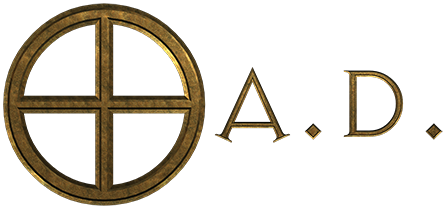TheLivingShadow said:
Your questions are, of course, very important and non-trivial. I didn't want to discuss them on the first post because it would have been a hell of a long post. In fact, wrong answers to the questions you ask is what leads to the terrible dictatorships or monarquies that have occurred so prevalently throughout the world's history.
However, I strongly believe there is a right answer for most of your questions. I'm not implying that I know these answers, but I am saying that the answer to the question you ask is most probably not: "Everything is relative, so it would be wrong" or along those lines, which is what most people assume is the answer to the questions you pose.
I won't discuss your questions in detail yet, but I will say that there are clear paths by which you may "increase" or "decrease" people's happiness, and these paths are not arbitrary. People's choices on leaders, however, do occur because of arbitrary factors.
|
I hold an opposing view. I believe that there is no correct answer to those questions that will lead to everyone being better off. In a democracy, the politicians have incentive to, as you say, make themselves look better. They do whatever they can to keep getting elected. Why wouldn't they? That's their job. And if something goes wrong, they can easily blame someone else. Americans seem to agree with this; Congress has a historically low approval rating, yet the representatives themselves are largely doing fine. It has taken the Benghazi scandal, the IRS scandal, the NSA scandal, the legislative disaster that is Obamacare finally revealling just how much damage it will do, and now Egypt for Obama's approval rating to dip lower. And still, he's at 46% approval, according to this.
So yes, politicians have no incentive to actually solve problems today. But would this be better under your system? In such a system, would it be possible to remove someone from the committee who is not doing their job? How would we know if they were or not? If they can't be removed, then they have no incentive to help at all. They're there for however long they're there. If they can be removed, they have an incentive to appear to be helping... but that doesn't necessarily mean that they will actually be helping. More importantly, they have an incentive to appeal to the standards by which they are held, but those standards can be corrupted... much like the corruption we have seen in the US.
I propose that it is the concentration of power that is the worst possible thing you could do. As an example, when the Constitution was ratified, there were many safeguards put into place to try and prevent power from accumulating too much in one area. I'm sure you're aware of the whole idea of checks and balances within the levels of government (and indeed, the initial attempt to create a governing document in the Articles of Confederation). But, through federalism, they also sought to limit the power of the federal government by making it compete more directly with state governments, and not just with the people. This was done by the state selection of senators. Now, you had a branch of Congress representing (some of) the people, and one representing the states. Then you had the executive at the federal level, and the judicial branch which ended up asserting its right of judicial review which should, in theory, allow it to keep everyone else in check according to the Constitution. This was a hodgepodge of conflicting interests that, in theory, should keep power from growing among any specific group.
The problem with that system is that it has become what we now have today. This is a direct result of the centralization of power. The president has asserted more and more authority in recent times (especially the last few), while Congress has backed off. Congress now solely represents the people, and the states have no voice anymore. The SCotUS... well, they're doing their own thing, but its opinions depend on whoever is appointed by the President and confirmed by the Senate.
I am skeptical of your system because I believe that the answers to the questions I asked cannot be non arbitrary, and because it is a centralization of power.






























 WHO IS JESUS REALLY?
WHO IS JESUS REALLY?



















